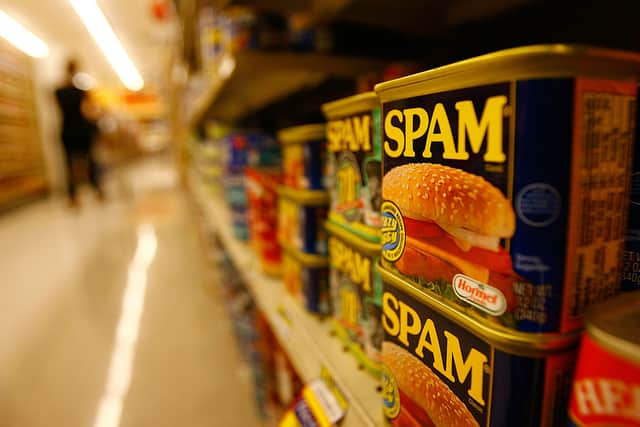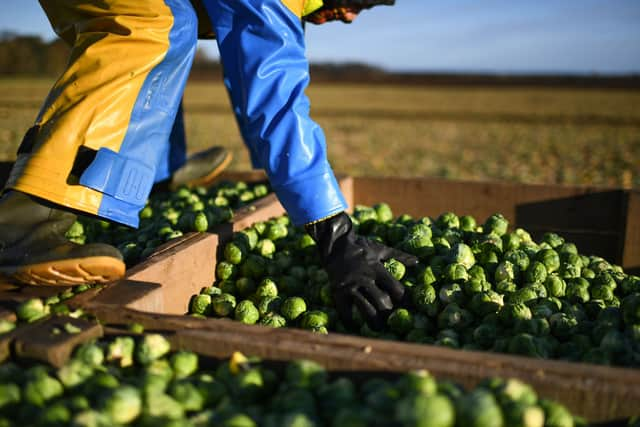Is tinned and frozen food healthy? Comparison with fresh food as Russia-Ukraine deepens cost of living crisis
This article contains affiliate links. We may earn a small commission on items purchased through this article, but that does not affect our editorial judgement.
and live on Freeview channel 276
Over the winter, the UK has been in the grip of a cost of living crisis that has raised the price of everything from energy to food.
This situation has only worsened in the wake of the Russia-Ukraine war.
Advertisement
Hide AdAdvertisement
Hide AdGiven both countries are key producers of food, the cost of eating in the UK could be set to rocket over the coming months.
It means many people will be forced to change their shopping behaviours - some will have to opt for cheaper food items, while others might be priced out of food almost entirely.


Those facing such challenges will be hoping for more support from the Chancellor Rishi Sunak in his upcoming Spring Statement.
But how healthy are tinned and frozen foods compared to fresh foods?
Here’s what you need to know.
Are tinned and frozen foods cheaper?
Advertisement
Hide AdAdvertisement
Hide AdWhile it is by no means guaranteed that all tinned and frozen foods are cheaper than their fresh counterparts, many certainly are.
Research by consumer group Which? in 2020 found that the price per kilo of fresh broccoli weighed in at £1.57 - but was just 86p per kilo for the frozen version of the brassica.
Raspberries, which the organisation found could be as much as £9 per kilo when fresh, cost just £5.75 when frozen and £3.34 when tinned.
A quick comparison of meat items using a major supermarket’s website showed that a branded tinned ham came in at 75p per 100g - cheaper than all but two of 52 fresh cooked hams the retailer had on offer (once volume deals were taken into account).
Advertisement
Hide AdAdvertisement
Hide AdA tin of minced beef with onion at the same retailer came in at £4.09 per kilo - cheaper than all bar one of its fresh beef mince products, most of which came in at well over £5 per kilo.


And for a fresh-frozen comparison, the same supermarket’s fresh smoked haddock was drastically more expensive (£14.29/kg) than its frozen alternative (£9.60/kg).
The frozen product also contained a greater volume of fish.
These calculations are back-of-a-cigarette-packet rough but show a glaring visible difference between the price of fresh, tinned and frozen.
Tinned and frozen foods also hold another advantage over fresh - you’re much less likely to have to throw them away given they have much longer expiry dates.
Advertisement
Hide AdAdvertisement
Hide AdThis fact means they can work out to be more cost-effective in the longer-term.
Are tinned and frozen foods as healthy as fresh?
While your wallet might feel better for tinned and frozen foods, do they provide good enough nourishment for your body?
The long-held assumption is that fresh is best.
But actually, frozen can be a more nutritious option, particularly for fruit and vegetables.


This is because they are processed very soon after being picked and then frozen - a process which locks in nutrients.
Advertisement
Hide AdAdvertisement
Hide AdFresh fruit and veg can sometimes take days to reach your local supermarket, meaning they are likely to have already lost some of their nutritional value before they reach your plate.
For tinned foods, the picture is less clear.
To keep their contents preserved, cans are often heated to a high temperature to kill off harmful bacteria.
This process can wipe out heat-sensitive nutrients, like Vitamin C, but enhance others, like antioxidants.
Where tinned can really lose out, however, is with what’s added in.
Advertisement
Hide AdAdvertisement
Hide AdFor example, tinned fruit can often come in a highly sugary syrup.
And vegetables tinned in salt water or brine can be very high in salt, which Diabetes UK warns could raise your blood pressure placing you at risk of cardiovascular disease.
Canned meats can also be very salty and may contain high levels of saturated fat, so it’s worth checking the nutrition labels on the cans you’re thinking of purchasing.
As a rule of thumb, it’s always best to opt for products that come either in water or their own juices.
A message from the editor:
Advertisement
Hide AdAdvertisement
Hide AdThank you for reading. NationalWorld is a new national news brand, produced by a team of journalists, editors, video producers and designers who live and work across the UK. Find out more about who’s who in the team, and our editorial values. We want to start a community among our readers, so please follow us on Facebook, Twitter and Instagram, and keep the conversation going. You can also sign up to our email newsletters and get a curated selection of our best reads to your inbox every day.
Comment Guidelines
National World encourages reader discussion on our stories. User feedback, insights and back-and-forth exchanges add a rich layer of context to reporting. Please review our Community Guidelines before commenting.
